by Ambrose Nzeyimana
 The U.S. Congress called Rosa Parks “the first lady of civil rights” and ”the mother of the freedom movement.” What made her an icon for the American Civil Rights Movement was not mainly her act of defiance of white authority, but the impact it had by prompting the Montgomery Bus Boycott and its transformation of the racial scenery in America. In fact, before her there had been many acts of disobedience against unjust and racist laws of the U.S. government.
The U.S. Congress called Rosa Parks “the first lady of civil rights” and ”the mother of the freedom movement.” What made her an icon for the American Civil Rights Movement was not mainly her act of defiance of white authority, but the impact it had by prompting the Montgomery Bus Boycott and its transformation of the racial scenery in America. In fact, before her there had been many acts of disobedience against unjust and racist laws of the U.S. government.
On Dec. 1, 1955, in Montgomery, Alabama, Parks refused to obey bus driver James F. Blake’s order that she give up her seat to make room for a white passenger. Her defiance was thereafter an important symbol of the movement. Parks became an international icon of resistance to racial segregation.
Victoire Ingabire, as leader of opposition political party FDU-Inkingi, went back to Rwanda two years ago, on Jan. 16, 2010. Upon her arrival, she paid a visit to the Genocide Memorial in Kigali at Gisozi. At the memorial she made the following statement to journalists and the general public:
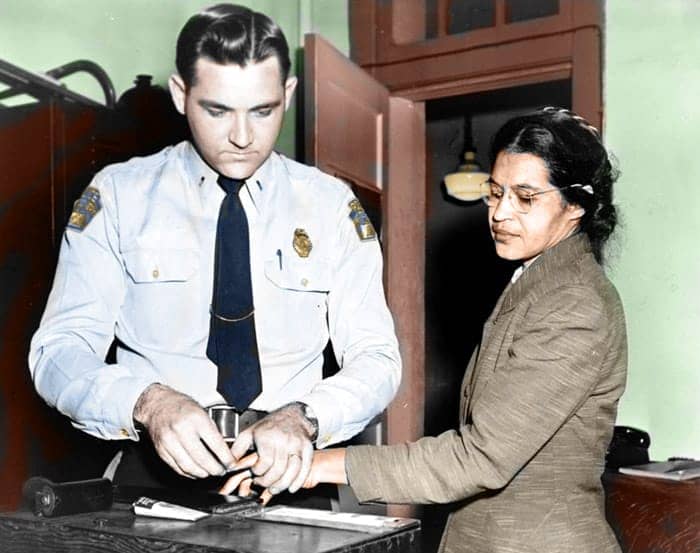 “I would like to say that today I came back to my country after 16 years, and there was a tragedy that took place in this country. We know very well that there was a genocide, extermination. Therefore, I could not have returned after 16 years to the same country after such actions took place. They took place when I was not in the country. I could not have fallen asleep without first passing by the place where those actions took place. I had to see the place. I had to visit the place.
“I would like to say that today I came back to my country after 16 years, and there was a tragedy that took place in this country. We know very well that there was a genocide, extermination. Therefore, I could not have returned after 16 years to the same country after such actions took place. They took place when I was not in the country. I could not have fallen asleep without first passing by the place where those actions took place. I had to see the place. I had to visit the place.
“The flowers I brought with me are a sign of remembrance from the members of my party, FDU, and its executive committee. They gave me a message to pass by here and tell Rwandans that what we wish for is for us to work together, to make sure that such a tragedy will never take place again. That is one of the reasons why the FDU Party made a decision to return to the country peacefully, without resorting to violence. Some think that the solution to Rwanda’s problems is to resort to armed struggle. We do not believe that shedding blood resolves problems. When you shed blood, the blood comes back to haunt you.
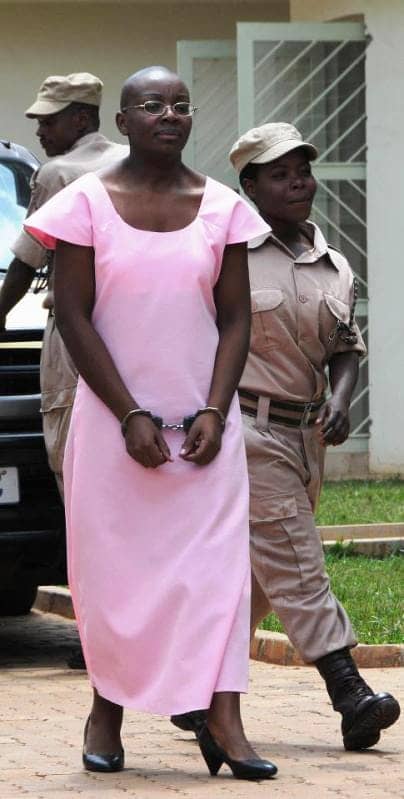
“For us to reach reconciliation, we need to empathize with everyone’s sadness. It is necessary that for the Tutsis who were killed, those Hutus who killed them understand that they need to be punished for it. It is also necessary that for the Hutus who were killed, those people who killed them understand that they need to be punished for it too. Furthermore, it is important that all of us, Rwandans from different ethnic groups, understand that we need to unite, respect each other and build our country in peace.
“What brought us back to the country is for us to start that path of reconciliation together and find a way to stop injustices so that all of us Rwandans can live together with basic freedoms in our country.”
“It is important that all of us, Rwandans from different ethnic groups, understand that we need to unite, respect each other and build our country in peace.” – Victoire Ingabire
Immediately after making this public statement, Ingabire was subjected to intimidation and her movements were restricted. She was finally put in prison on Oct. 14, 2010. Despite her imprisonment, her stand and determination have irrevocably shaken the foundations of Paul Kagame’s autocratic military regime.
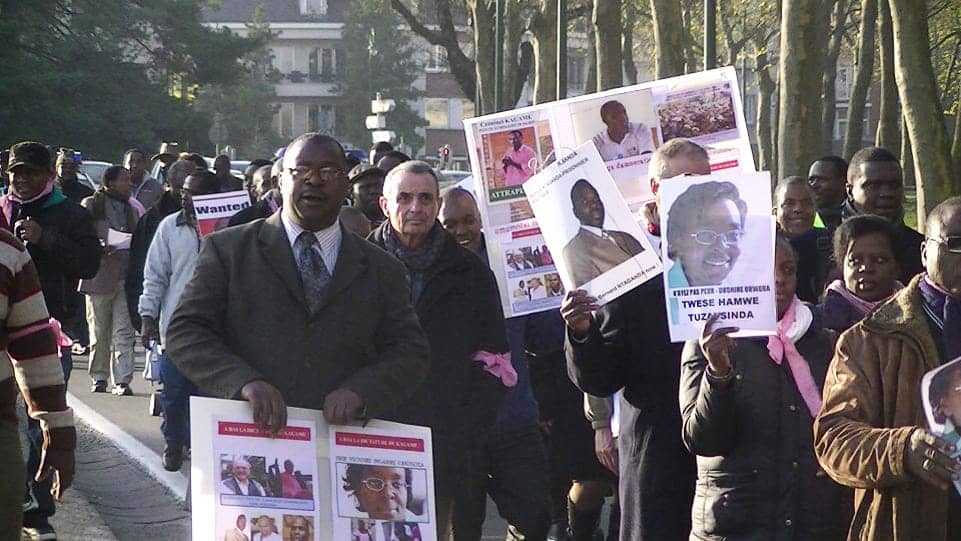
As with the path that the U.S. Civil Rights Movement took after Rosa Parks refused to give up her seat on a Montgomery bus, nothing in Rwanda will ever be the same after Victoire Ingabire’s defiance of the Rwandan government’s unjust laws. She sparked a spirit of resistance.
Nothing in Rwanda will ever be the same after Victoire Ingabire’s defiance of the Rwandan government’s unjust laws. She sparked a spirit of resistance.
On Jan. 16, Rwandans will from now on remember Ingabire’s homecoming. They, in Rwanda and in the Rwandan Diaspora, must now help her carry out the peaceful revolution she started on that day, Jan. 16, 2010, until all Rwandan citizens share the same rights, including freedom of association and speech and the right to elect their leaders and until political prisoners are released.
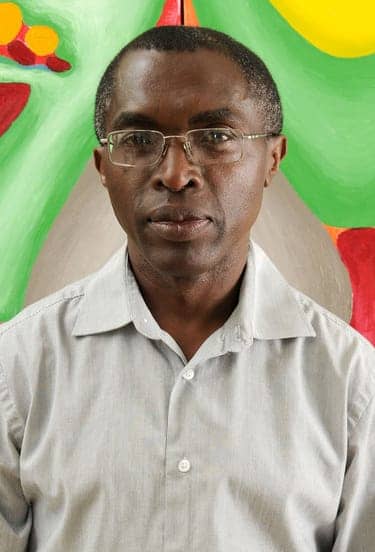
Victoire Ingabire engages Rwandan Senate on the plight of political prisoners
by Boniface Twagirimana
On Friday, Jan. 6, 2012, some members of Rwanda’s Senate Committee on Foreign Affairs, Cooperation and Security accepted a few live questions from prisoners inside the Kigali Central Prison. Political prisoner Victoire Ingabire, chair of the FDU-Inkingi coalition of parties, engaged the senators on the plight of political prisoners in Rwanda and urged them to promote laws granting more freedoms and democracy in the country before they finish their term in the Senate.
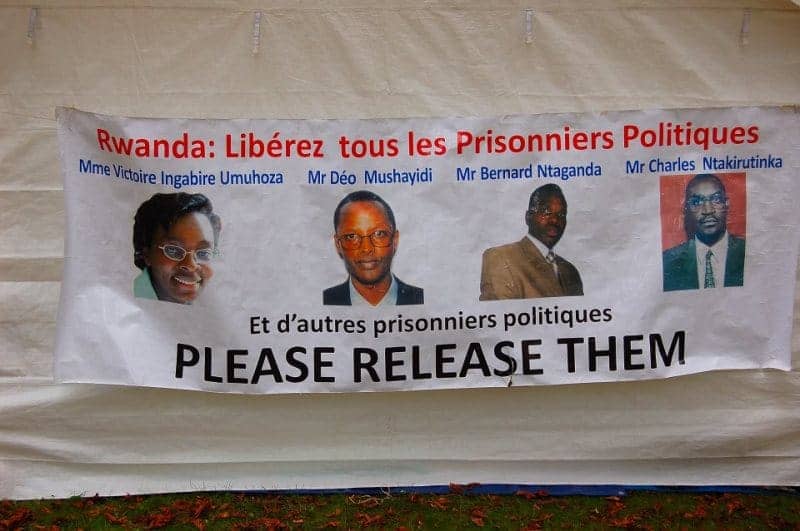
“People need more freedoms and democracy in this country. Otherwise, there will be no real reconciliation, no sustainable development and no political stability,” Ingabire told the senators.
“She is a bad influence here,” murmured a security officer to a member of the delegation, who whispered, “They are just prisoners.” The visiting members of the Senate promised to discuss the issue.
The delegation was chaired by Sen. Jean Damascene Bizimana, head of the Committee on Foreign Affairs, Cooperation and Security. This is no special event, as the committee has been touring various prisons. On Nov. 29, 2011, they visited Nyagatare Prison and the Gabiro community service program for prisoners (TIG).
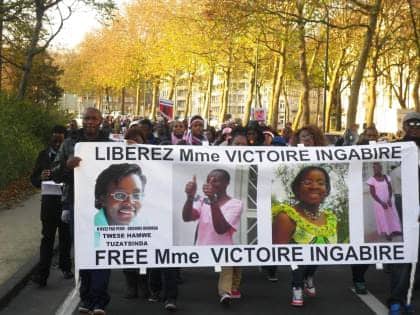
In 2010, a study commissioned by the Rwandan Senate on political pluralism and power sharing in Rwanda revealed that 69 percent of those surveyed believe the fear of authority is the major obstacle to freedom of speech and political space, followed closely by nepotism and the legacy of genocide.
FDU-Inkingi, the coalition of Rwandan political parties led by Victoire Ingabire, welcomes the liberation of an executive member of the party, Gratien Nsabiyaremye, who was abducted and beaten by Capt. Rutaburingoga of the marine unit in Gisenyi on Jan. 2, 2012. Prosecutor Chantal Uwamahoro issued a release order, but Nsabiyaremye is required to report to the local police station every Tuesday.

Boniface Twagirimana, interim vice president of the FDU-Inkingi coalition of Rwandan political parties, can be reached at fdu.inkingi.rwa@gmail.com. He concludes this dispatch with a quotation by Victoire Ingabire: “Don’t give up; he will never jail a whole nation.”





